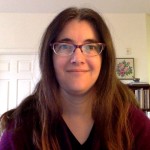My reading
Haftarah Parahsat Lekh L’kha
Isaiah 40:27 – 41:16
40:27 לָ֤מָּה תֹאמַר֙ יַֽעֲקֹ֔ב וּתְדַבֵּ֖ר יִשְׂרָאֵ֑ל נִסְתְּרָ֤ה דַרְכִּי֙ מֵיְהוָ֔ה וּמֵאֱלֹהַ֖י מִשְׁפָּטִ֥י יַעֲבֽוֹר׃
40:28 הֲל֨וֹא יָדַ֜עְתָּ אִם־לֹ֣א שָׁמַ֗עְתָּ אֱלֹהֵ֨י עוֹלָ֤ם׀ יְהוָה֙ בּוֹרֵא֙ קְצ֣וֹת הָאָ֔רֶץ לֹ֥א יִיעַ֖ף וְלֹ֣א יִיגָ֑ע אֵ֥ין חֵ֖קֶר לִתְבוּנָתֽוֹ׃
40:29 נֹתֵ֥ן לַיָּעֵ֖ף כֹּ֑חַ וּלְאֵ֥ין אוֹנִ֖ים עָצְמָ֥ה יַרְבֶּֽה׃
40:30 וְיִֽעֲפ֥וּ נְעָרִ֖ים וְיִגָ֑עוּ וּבַחוּרִ֖ים כָּשׁ֥וֹל יִכָּשֵֽׁלוּ׃
40:31 וְקוֹיֵ֤ יְהוָה֙ יַחֲלִ֣יפוּ כֹ֔חַ יַעֲל֥וּ אֵ֖בֶר כַּנְּשָׁרִ֑ים יָר֙וּצוּ֙ וְלֹ֣א יִיגָ֔עוּ יֵלְכ֖וּ וְלֹ֥א יִיעָֽפוּ׃
41:1 הַחֲרִ֤ישׁוּ אֵלַי֙ אִיִּ֔ים וּלְאֻמִּ֖ים יַחֲלִ֣יפוּ כֹ֑חַ יִגְּשׁוּ֙ אָ֣ז יְדַבֵּ֔רוּ יַחְדָּ֖ו לַמִּשְׁפָּ֥ט נִקְרָֽבָה׃
41:2 מִ֤י הֵעִיר֙ מִמִּזְרָ֔ח צֶ֖דֶק יִקְרָאֵ֣הוּ לְרַגְל֑וֹ יִתֵּ֨ן לְפָנָ֤יו גּוֹיִם֙ וּמְלָכִ֣ים יַ֔רְדְּ יִתֵּ֤ן כֶּֽעָפָר֙ חַרְבּ֔וֹ כְּקַ֥שׁ נִדָּ֖ף קַשְׁתּֽוֹ׃
41:3 יִרְדְּפֵ֖ם יַעֲב֣וֹר שָׁל֑וֹם אֹ֥רַח בְּרַגְלָ֖יו לֹ֥א יָבֽוֹא׃
41:4 מִֽי־פָעַ֣ל וְעָשָׂ֔ה קֹרֵ֥א הַדֹּר֖וֹת מֵרֹ֑אשׁ אֲנִ֤י יְהוָה֙ רִאשׁ֔וֹן וְאֶת־אַחֲרֹנִ֖ים אֲנִי־הֽוּא׃
41:5 רָא֤וּ אִיִּים֙ וְיִירָ֔אוּ קְצ֥וֹת הָאָ֖רֶץ יֶחֱרָ֑דוּ קָרְב֖וּ וַיֶּאֱתָיֽוּן׃
41:6 אִ֥ישׁ אֶת־רֵעֵ֖הוּ יַעְזֹ֑רוּ וּלְאָחִ֖יו יֹאמַ֥ר חֲזָֽק׃
41:7 וַיְחַזֵּ֤ק חָרָשׁ֙ אֶת־צֹרֵ֔ף מַחֲלִ֥יק פַּטִּ֖ישׁ אֶת־ה֣וֹלֶם פָּ֑עַם אֹמֵ֤ר לַדֶּ֙בֶק֙ ט֣וֹב ה֔וּא וַיְחַזְּקֵ֥הוּ בְמַסְמְרִ֖ים לֹ֥א יִמּֽוֹט׃
41:8 וְאַתָּה֙ יִשְׂרָאֵ֣ל עַבְדִּ֔י יַעֲקֹ֖ב אֲשֶׁ֣ר בְּחַרְתִּ֑יךָ זֶ֖רַע אַבְרָהָ֥ם אֹהֲבִֽי׃
41:9 אֲשֶׁ֤ר הֶחֱזַקְתִּ֙יךָ֙ מִקְצ֣וֹת הָאָ֔רֶץ וּמֵאֲצִילֶ֖יהָ קְרָאתִ֑יךָ וָאֹ֤מַר לְךָ֙ עַבְדִּי־אַ֔תָּה בְּחַרְתִּ֖יךָ וְלֹ֥א מְאַסְתִּֽיךָ׃
41:10 אַל־תִּירָא֙ כִּ֣י עִמְּךָ־אָ֔נִי אַל־תִּשְׁתָּ֖ע כִּֽי־אֲנִ֣י אֱלֹהֶ֑יךָ אִמַּצְתִּ֙יךָ֙ אַף־עֲזַרְתִּ֔יךָ אַף־תְּמַכְתִּ֖יךָ בִּימִ֥ין צִדְקִֽי׃
41:11 הֵ֤ן יֵבֹ֙שׁוּ֙ וְיִכָּ֣לְמ֔וּ כֹּ֖ל הַנֶּחֱרִ֣ים בָּ֑ךְ יִֽהְי֥וּ כְאַ֛יִן וְיֹאבְד֖וּ אַנְשֵׁ֥י רִיבֶֽךָ׃
41:12 תְּבַקְשֵׁם֙ וְלֹ֣א תִמְצָאֵ֔ם אַנְשֵׁ֖י מַצֻּתֶ֑ךָ יִהְי֥וּ כְאַ֛יִן וּכְאֶ֖פֶס אַנְשֵׁ֥י מִלְחַמְתֶּֽךָ׃
41:13 כִּ֗י אֲנִ֛י יְהוָ֥ה אֱלֹהֶ֖יךָ מַחֲזִ֣יק יְמִינֶ֑ךָ הָאֹמֵ֥ר לְךָ֛ אַל־תִּירָ֖א אֲנִ֥י עֲזַרְתִּֽיךָ׃
41:14 אַל־תִּֽירְאִי֙ תּוֹלַ֣עַת יַֽעֲקֹ֔ב מְתֵ֖י יִשְׂרָאֵ֑ל אֲנִ֤י עֲזַרְתִּיךְ֙ נְאֻם־יְהוָ֔ה וְגֹאֲלֵ֖ךְ קְד֥וֹשׁ יִשְׂרָאֵֽל׃
41:15 הִנֵּ֣ה שַׂמְתִּ֗יךְ לְמוֹרַג֙ חָר֣וּץ חָדָ֔שׁ בַּ֖עַל פִּֽיפִיּ֑וֹת תָּד֤וּשׁ הָרִים֙ וְתָדֹ֔ק וּגְבָע֖וֹת כַּמֹּ֥ץ תָּשִֽׂים׃
41:16 תִּזְרֵם֙ וְר֣וּחַ תִּשָּׂאֵ֔ם וּסְעָרָ֖ה תָּפִ֣יץ אוֹתָ֑ם וְאַתָּה֙ תָּגִ֣יל בַּֽיהוָ֔ה בִּקְד֥וֹשׁ יִשְׂרָאֵ֖ל תִּתְהַלָּֽל׃










